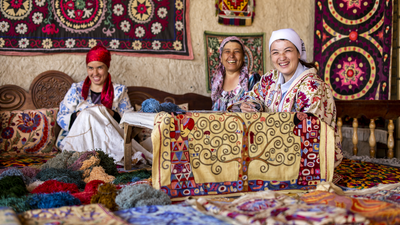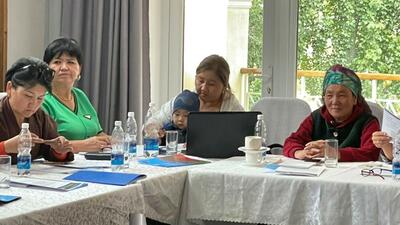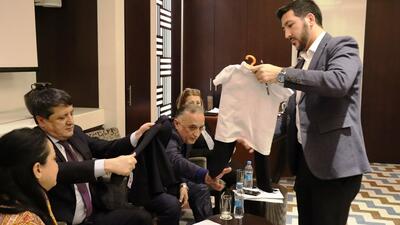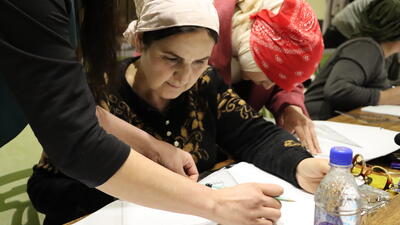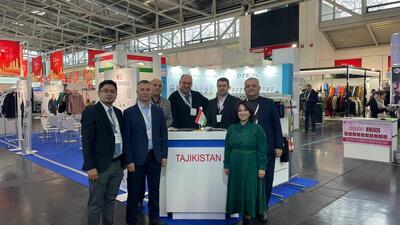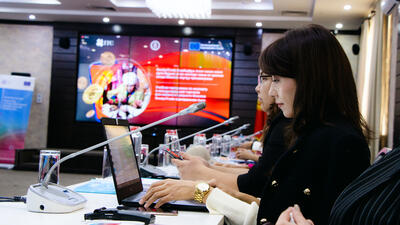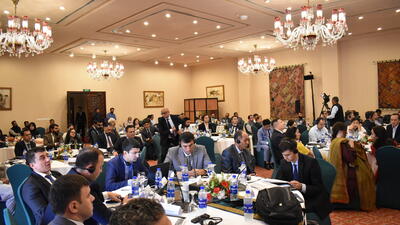Tajik stakeholders trained on WTO regulations, quality standards for textiles and clothing
Understanding the multilateral trading system
Tajik government officials have boosted their knowledge of the multilateral trading system and members of the business community have gained valuable skills in quality-management following training offered by the International Trade Centre (ITC).
Representatives of the Ministry of Economic Development and Trade and the Ministry of Agriculture received training on ‘Business implications of a multilateral trading system’ from 7-11 April in Geneva, as part of an ITC project aimed at strengthening the public and private sectors’ knowledge of the opportunities and challenges stemming from membership in the World Trade Organization (WTO). Tajikistan became the 159th member of the WTO in March 2013.
Experts from ITC, the WTO, the Advisory Centre on WTO Law and law firms presented lectures and real-life examples on topics including market access, customs administration, WTO rules on export and import quantitative restrictions, and anti-dumping procedures. Participants also received information on the WTO Agreement on Technical Barriers to Trade, Sanitary Phytosanitary Measures, dispute-settlement procedure, and trade-in-services regulations.
The Tajik delegation received ‘fundamental and practical knowledge of the multilateral trading system and regulations and international trade-dispute settlement procedures in this training course’, said Suhrob Odinaev, Chief Specialist of the WTO Department at the Tajik Ministry of Economic Development and Trade, who attended the training.
The training was planned as part of a project financed by the Government of Switzerland under its Trade Cooperation Program in Tajikistan.
Improving the textiles and clothing sector
Tajik delegates learned about implementation of a quality-management system in its textiles and clothing sector through a series of seminars planned under the ITC project called ‘Strengthening export competitiveness of SMEs in the textiles and clothing sector and enhancing trade support institutional capacities in Tajikistan’, also funded by the Swiss Trade Cooperation Program.
Participants included representatives of textiles and clothing companies in the Khatlon and Sughd provinces and the capital city of Dushanbe, as well as government officials and members of business-support services organizations.
They were introduced to the International Organization for Standardization (ISO) 9001 standard during a seminar on 10 April in Dushanbe. Farzona Tilavova, an ITC consultant and director of the consulting company Kamolot-1, conducted the series of seminars to help participants improve product quality and the resulting level of customer satisfaction. The ultimate goal is to make Tajik companies more competitive in global markets.
‘Implementing the new quality-management system will also increase the clients’ and potential partners’ confidence, and assist in improving an enterprise image and create favourable conditions to attract investments,’ Ms. Tilavova said.
The seminar covered topics such as the role of senior management in implementing the quality-management system; quality management in marketing, design, procurement and production activities; the continuous improvement of the quality-management system; its documentation and implementation methodology; the internal audit; and certification of the quality-management system by a third party.








